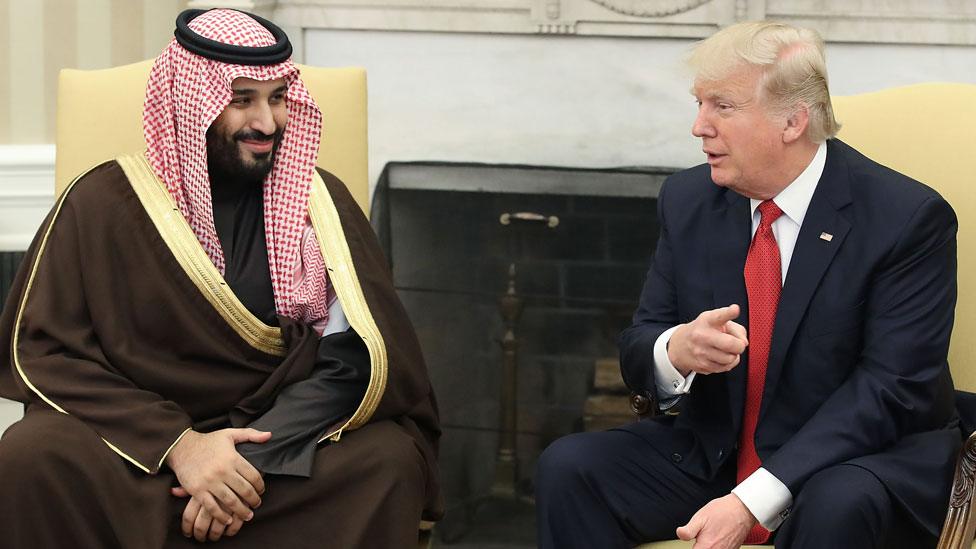Trump Saudi visit aims to build new relationship
- Published
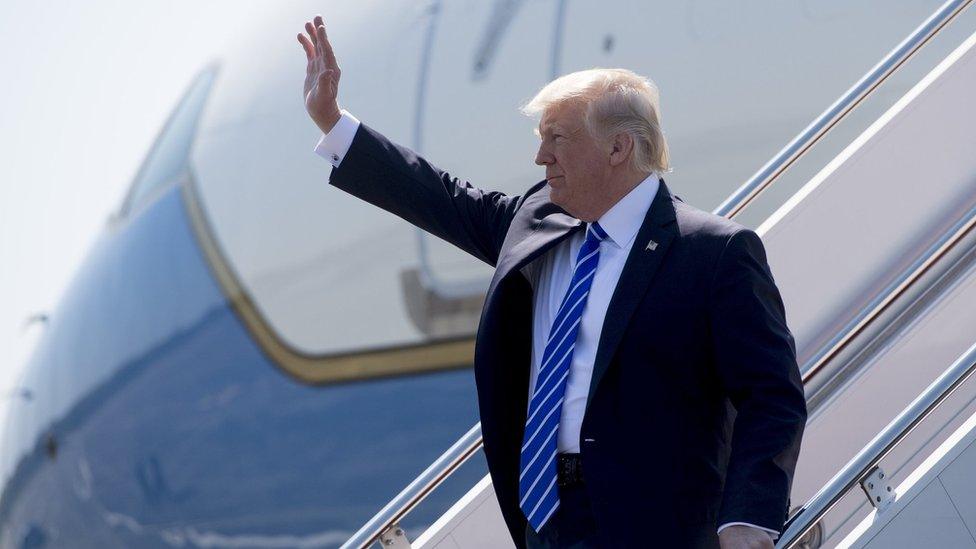
US President Donald Trump is embarking on his first overseas trip since taking office, visiting Saudi Arabia, Israel and the Vatican - the homes of Islam, Judaism and Christianity.
Saudi Arabia is, on the face of it, a surprising choice of destination for Mr Trump's first overseas trip since taking office.
The birthplace of Islam, and home to the holy pilgrimage sites of Mecca and Medina, is hosting a man recently accused of Islamophobia for his failed attempts to ban visitors from six Muslim-majority countries.
In February 2016, during his presidential election campaign, he suggested that Saudi officials had been complicit in the 9/11 attacks. "Who blew up the World Trade Center?" he said. "It wasn't the Iraqis, it was Saudi - take a look at Saudi Arabia, open the documents."
Shared interests
So what has changed since then? A lot, is the answer.
As president, Mr Trump has decided that one way of distancing himself from the foreign policies of his predecessor Barack Obama is to vilify Iran and cosy up to the Saudis.
Soon after taking office in January he sent his new CIA Director, Mike Pompeo, to Saudi Arabia and Bahrain, where he received red-carpet welcomes.
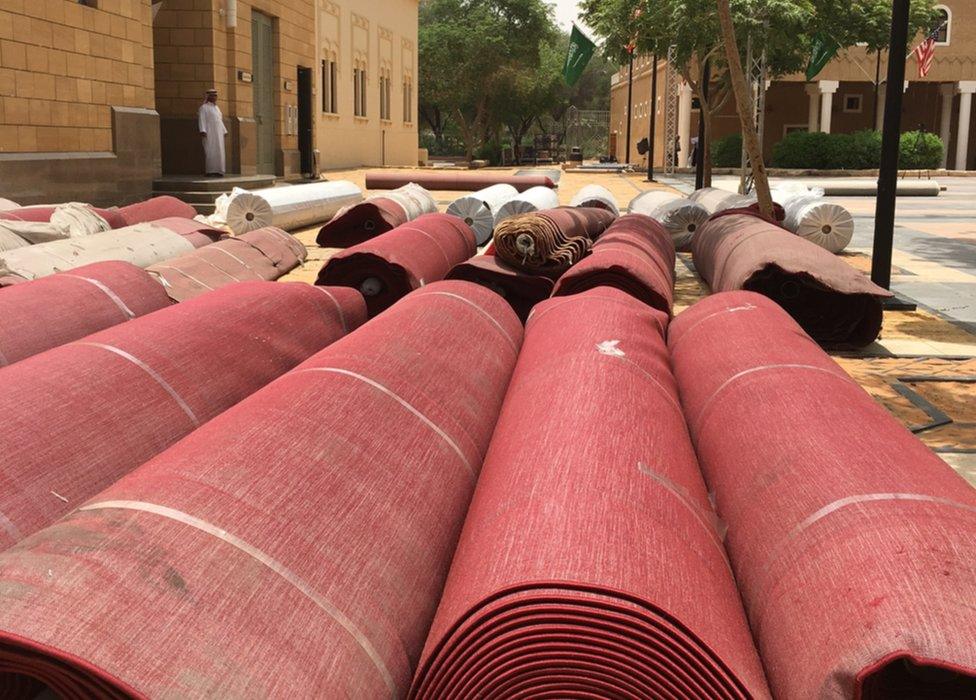
Saudi officials are rolling out the red carpet for Donald Trump
Then came the key turning point in forging a new relationship between Washington and Riyadh - March's visit to the White House by the young Saudi Deputy Crown Prince and Defence Minister, Prince Mohammed Bin Salman.
The two men hit it off together immediately.
They are both currently taking their respective countries down new and risky paths - Mr Trump with his recent missile strike on Syria and his facing down the North Koreans, and the prince with his leadership of the Saudi-led war against Yemen's Houthi rebel movement.
Their primary area of shared interest was their common view that Shia power Iran represented a threat to the Middle East.
Trump's first trip: What's on the agenda in Saudi Arabia?
For the Saudis, Iran's Sunni regional rivals, this was music to their ears. They lost confidence in Mr Obama, some years ago, suspecting him of "going soft" on Iran in the rush to secure a nuclear deal before the end of his presidency.
Prince Mohammed emerged from that White House meeting pronouncing that he was "very optimistic" about President Trump, who he said would "bring America back to the right track".
So what exactly are the main issues under discussion when the vast US presidential machine rolls into Riyadh?
Terrorism and security
Countering the terrorist threat, specifically from so-called Islamic State (IS, or "Daesh" as Arabs call this transnational jihadist organisation), will loom large in discussions.
The US Central Intelligence Agency (CIA), along with other Western intelligence agencies and special forces, has been helping the Saudi authorities cope with terrorism since the al-Qaeda insurgency of 2003 and before that even as far back as the 1979 siege of Mecca.
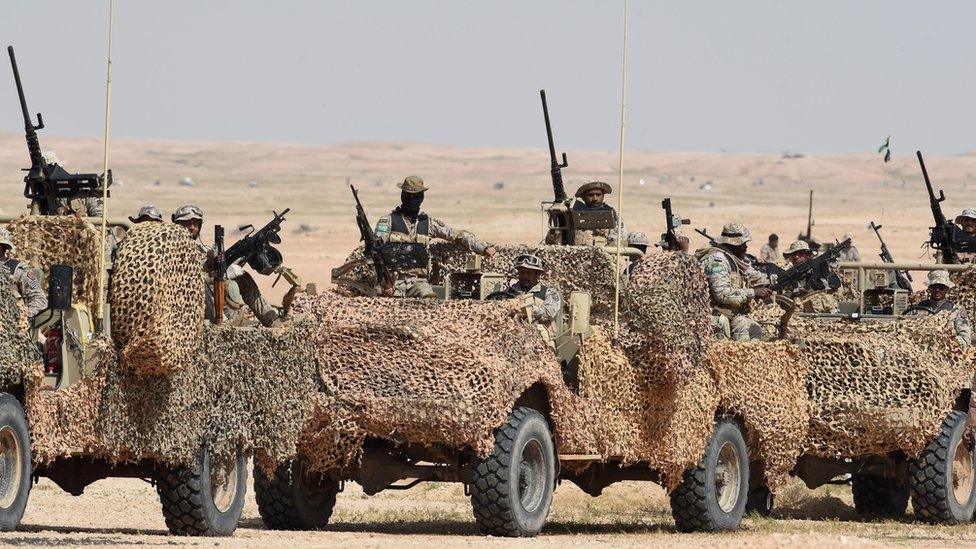
The US military helps trains Saudi special forces personnel
IS, a Sunni extremist group that considers Shia apostates, has bombed Shia mosques in both Saudi Arabia and Kuwait. But it has also attacked Sunni mosques where security personnel worship, and it continues to plot attacks inside Saudi Arabia on both Westerners and Saudi officials.
In the 2000s, the Saudi authorities defeated the al-Qaeda insurgency through a combination of police and military action, and a public awareness campaign that turned Saudi society against the jihadists.
But today, with conflicts raging in Iraq, Syria, Libya and Yemen, the problem has returned with sizeable numbers of young Saudis feeling drawn to the extreme "takfiri" ideology of IS.
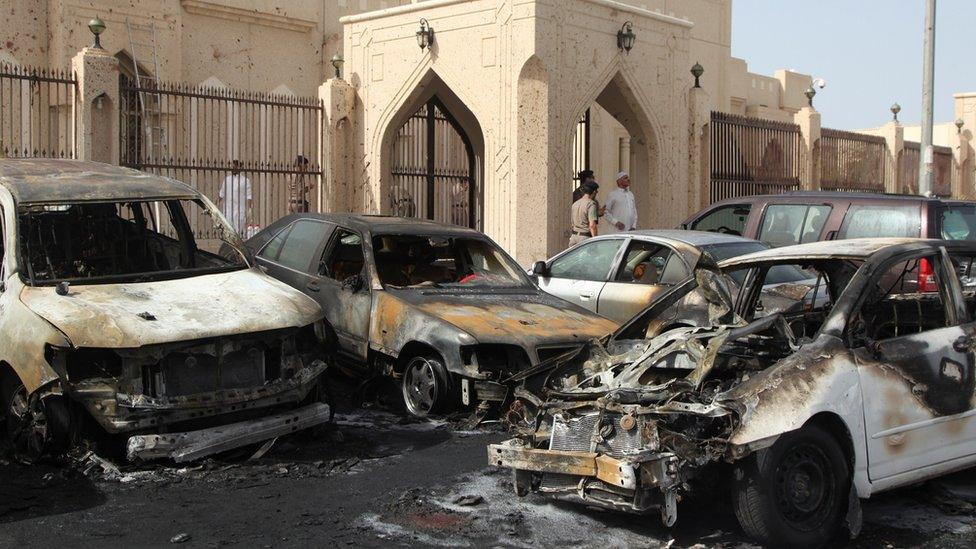
IS suicide bombers have targeted Shia mosques in Saudi Arabia
Thousands have gone to Syria to fight for either IS or other jihadist groups, and many analysts accuse Saudi Arabia of being part of the problem, not doing enough to clamp down on public statements by clerics who are hostile and intolerant of other religions while exporting a narrow-minded ideology abroad.
As a presidential candidate, Mr Trump promised he had a secret plan to defeat IS.
In reality, US military strategy in the Syria-Iraq arena has not fundamentally altered course during his first four months in office, although some Obama-era checks and balances on certain operations have been lifted.
In Riyadh, there will be broad agreement about the threat posed by the jihadists of IS, but this is unlikely to translate into any new large-scale deployment of either country's forces to Syria or Iraq.
Saudi FM: Trump visit is coup for peace
Countering Iran
Saudi Arabia's rulers see Iran and the militias it supports as the greatest threat to the region - an allegation that is denied, not surprisingly, by Tehran.
Their Sunni-ruled neighbours, Bahrain and the UAE, also see Iran as a major threat. So too do certain key members of President Trump's administration, most notably National Security Adviser Gen H R McMaster and Defence Secretary James Mattis.
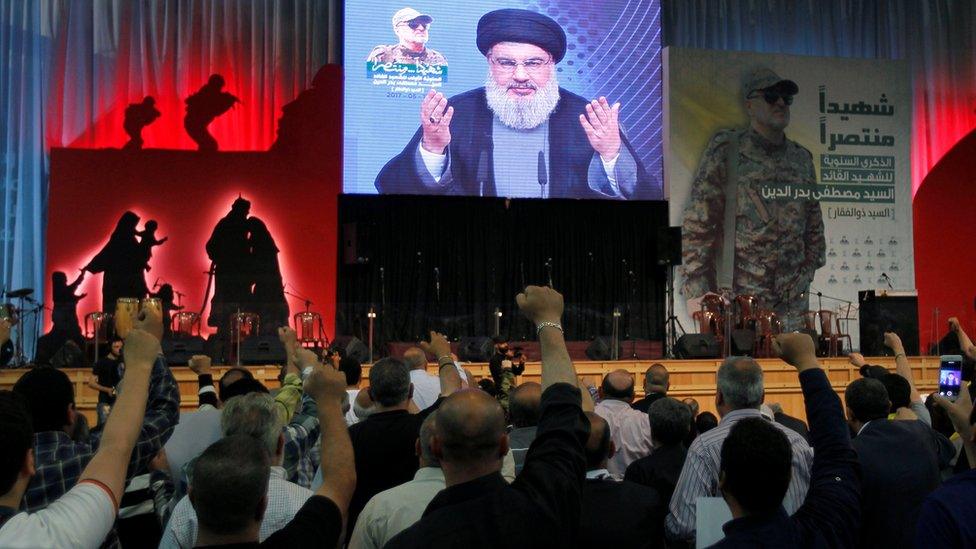
The Iranian-backed Lebanese Shia group Hezbollah is fighting Saudi-supported rebels in Syria
Both men served in the military and remember the frequent clashes between the US Navy and the Iranian Revolutionary Guards Corps in the Gulf. They also recall the bombing of the US Marine barracks in Beirut in 1983 that killed more than 200 US personnel and was blamed on Hezbollah.
Mr Trump has also been vociferous in his criticism of Iran and the 2015 nuclear deal, calling it "the worst deal ever", something which has played into the hands of Iran's hardliners, who also oppose the deal.
Saudi Arabia, a Sunni-majority nation, has been locked in an on-off regional power struggle with Shia-majority Iran ever since the Islamic Revolution there in 1979.
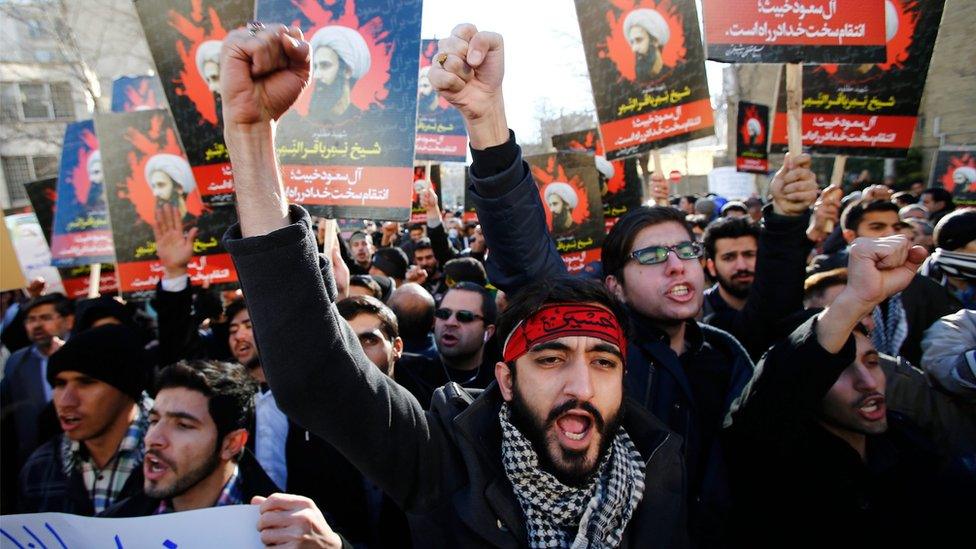
The execution of Shia cleric Nimr al-Nimr by the Saudi authorities caused outrage in Iran
Notable flashpoints have been stampedes at the annual Hajj pilgrimage, in which hundreds of Iranian pilgrims have been killed, and the 2016 execution by the Saudis of a Shia cleric, which sparked the ransacking of the Saudi embassy in Tehran and the breaking off of diplomatic relations.
Prince Mohammad declared this month that there was no point in even talking to the Iranian regime at present.
Current Gulf Arab distrust of Iran stems from several areas: Tehran's support for the regime of Syrian President Bashar al-Assad; the expansion of Hezbollah's operations outside Lebanon; the arming and training of Shia militias in Iraq; the powerful influence Tehran now exerts over the Iraqi government in Baghdad; Iranian support for Yemen's Houthi rebels; and its alleged covert encouragement of Shia insurgents in Bahrain and Saudi Arabia's restive Eastern Province.
Iran, for its part, retorts that Saudi Arabia is the root of the terrorist problem with its acquiescence towards religious intolerance and its global proselytising based on the narrow ideology of Salafism.
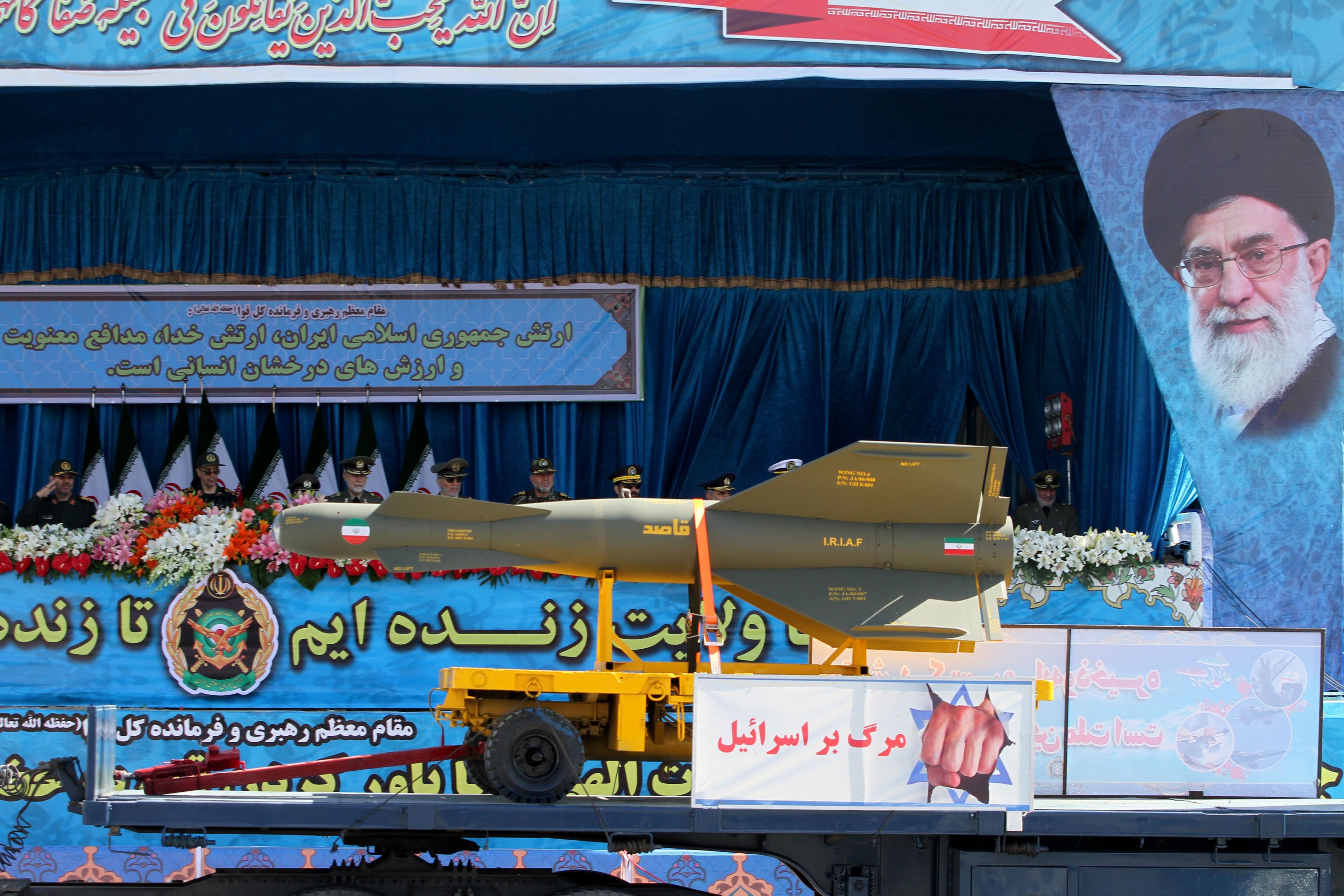
Prince Mohammed Bin Salman accused Iran of trying "to control the Islamic world"
The Iranians point, with some justification, at the common ideology shared by IS and hardline Saudi clerics, as well as the practice of beheading prisoners. (Iran also executes a large number of prisoners annually but usually by hanging or firing squad).
Iran has pointed out that the Saudis and Qataris have spent vast sums over the last six years in funding Sunni militias in Syria in a vain attempt to defeat Mr Assad's forces.
In practical terms, the joint US-Saudi position on Iran is likely to translate into increased sales of sophisticated US weaponry; a near absence of criticism of Saudi Arabia's human rights record; and a reversal of Mr Obama's suspension of a contract to supply Riyadh with precision-guided munitions for air strikes that was halted last year because of mounting civilian casualties in Yemen.
Business ties
When President Trump's plane lifts off from Riyadh at the end of the Saudi leg of this trip, he will be hoping to have in his pocket some promises of major Saudi investment in the US - up to $40bn (£31bn), according to some reports.

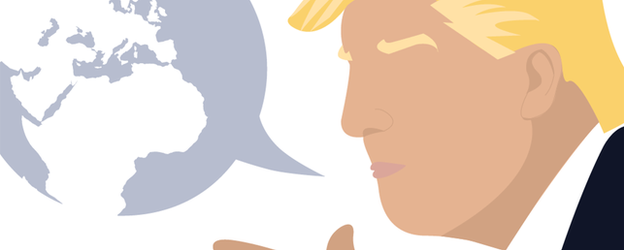
Find out which foreign leaders President Trump has met or called since taking office, as well as the countries he has mentioned in his tweets.

His key interlocutor here will once again be Prince Mohammed Bin Salman, who in addition to being defence minister is overseeing Saudi Arabia's economic development.
The prince, or "MBS" as he is often called, has huge plans to transform not just Saudi Arabia's oil-dependent economy, including the partial privatisation of the state oil giant Saudi Aramco, but also its cultural landscape.
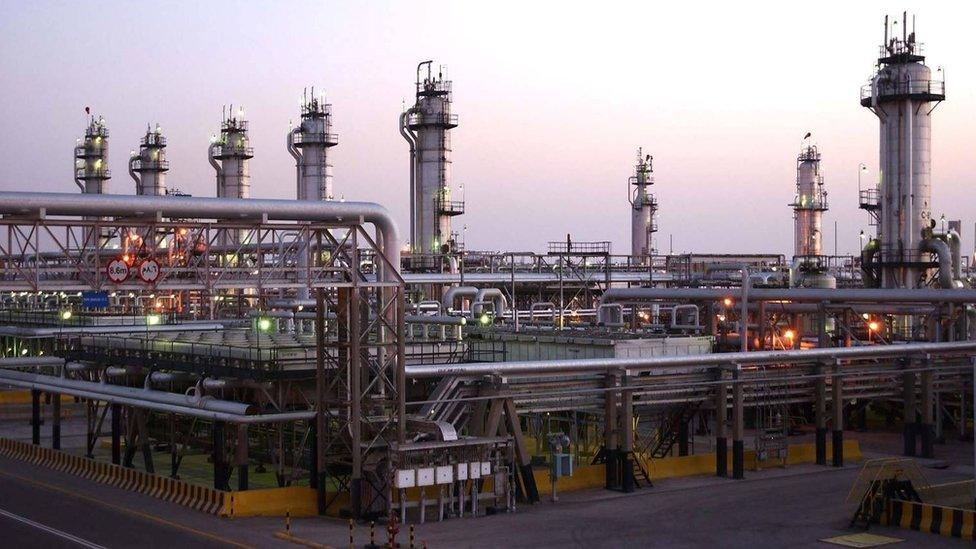
State oil giant Saudi Aramco plans to list about 5% of its shares
At the risk of angering his country's conservative clerics and their supporters, the prince wants to introduce public entertainment, making Saudi Arabia "a happier place".
This will go down well with much of the country's bored and underemployed youth, and there are ample opportunities here for the US entertainment industry. But there are also dangers.
King Faisal, who ruled from 1964 to 1975, angered religious conservatives by introducing television and education for women. He was assassinated.
- Published17 May 2017
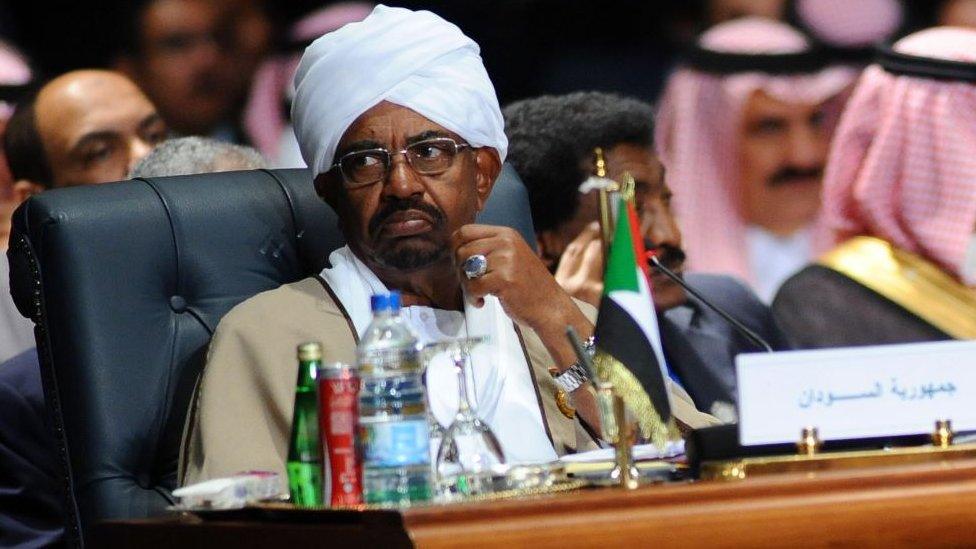
- Published4 May 2017
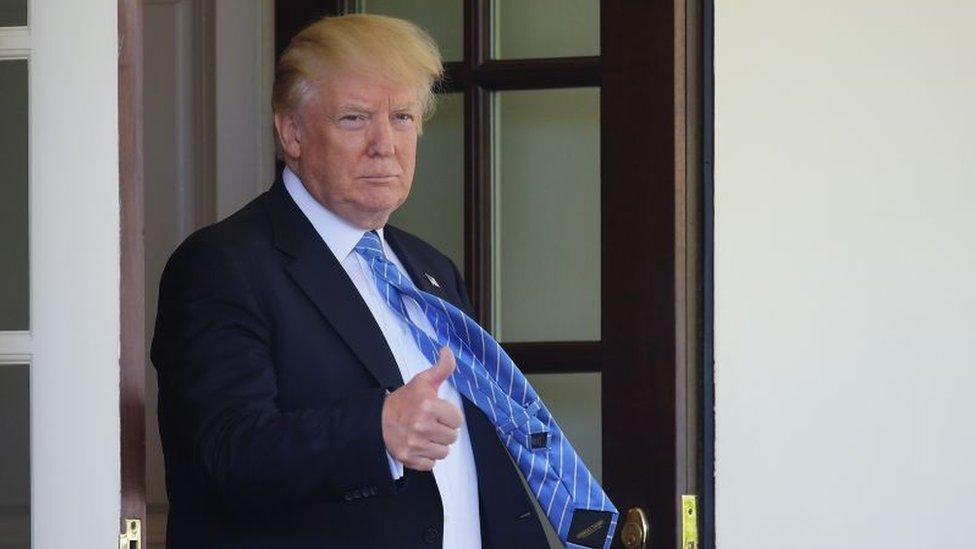
- Published22 April 2017
